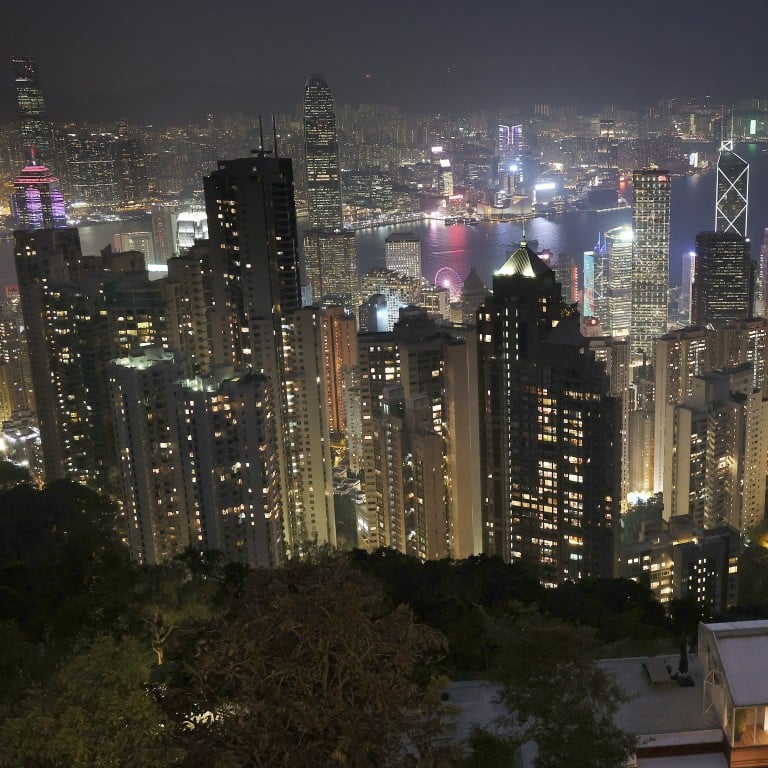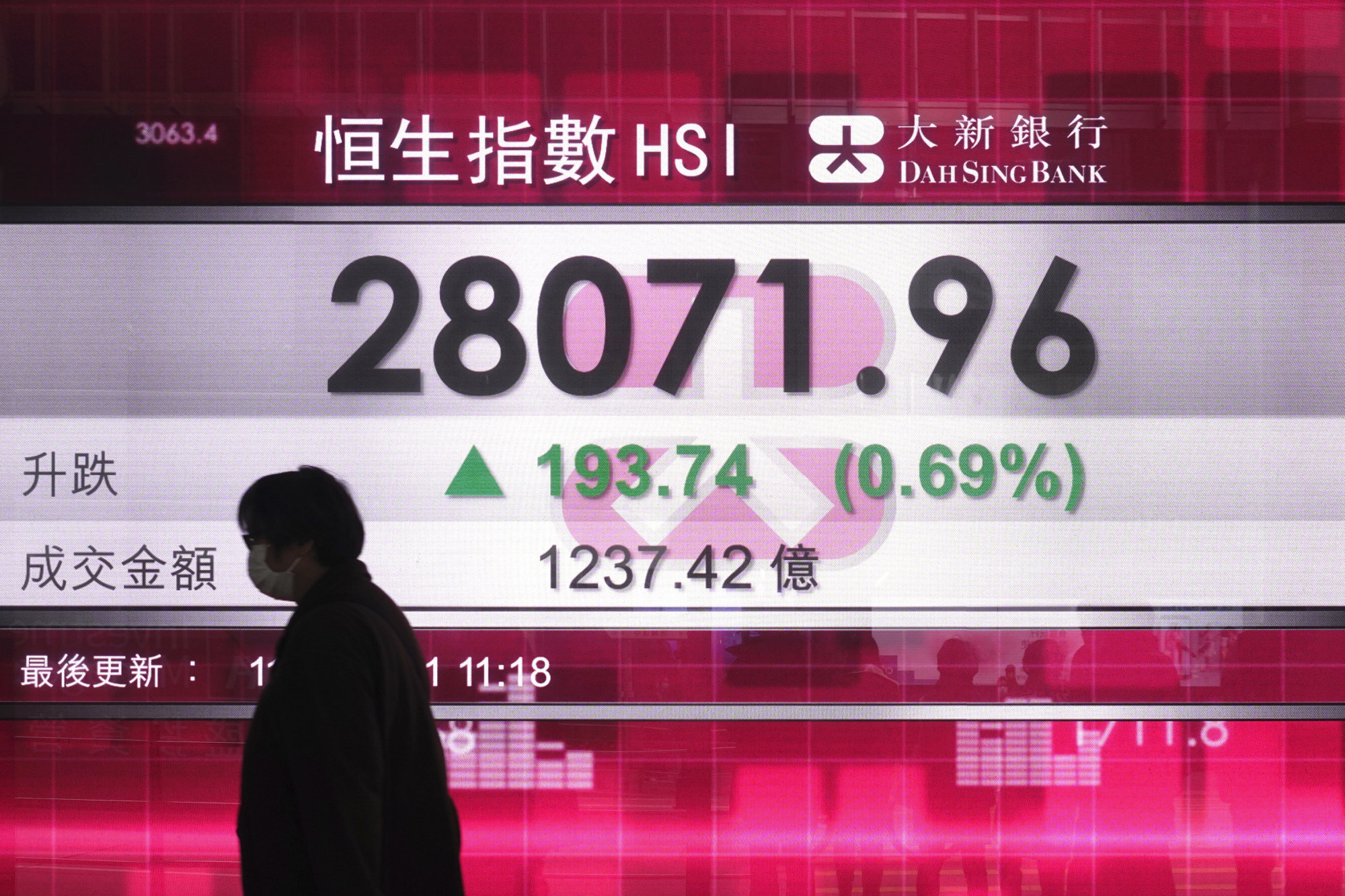
Explainer | What are SPACs, where are the pitfalls and why is Hong Kong mulling joining in the latest investment craze?
- Special purpose acquisition companies, or SPACs, are one of the hottest capital-raising trends this year, with fans including Hong Kong-based tycoons Richard Li and Adrian Cheng
- Hong Kong is among several Asian bourses considering allowing so-called blank-cheque companies to raise capital in the city
The city is reviewing its options after several wealthy families in Hong Kong and Asia said they will seek to sponsor SPACs in the US instead of Hong Kong.
Here is what you need to know about SPACs, which may well be the next big thing in Hong Kong’s stock market.

What are SPACs?
SPACs do not have an existing business. They are created purely as a vehicle to attract investors, build up financial war chests and buy assets, typically unlisted companies.
These types of shell companies are primarily found in the US, but Singapore, Hong Kong and Indonesia are among Asian markets exploring ways to allow SPACs.
SPACs are typically set up by well-known financiers or celebrities, with the support of an experienced investment management team. These “sponsors” typically own about 20 per cent of a SPAC, with the remaining 80 per cent sold to other investors through an initial public offering, according to a report by accounting firm PwC.
SPACs do not necessarily have an acquisition in mind when they list, but often disclose a sector or geography where they intend to invest. Once they identify a target company, the majority of SPAC shareholders must sign off on the deal for it to go ahead.
The investment vehicles have to make an acquisition, usually within 18 months to 24 months, of their IPOs, a process known as de-SPACing. If they fail to meet that deadline they would have to return investors’ money.
What prompted Hong Kong to mull allowing SPAC listings now?
Hong Kong does not have regulations in place that allow SPACs to list and the lion’s share of those offerings – and associated fees – are going to American bourses.
Nasdaq and the New York Stock Exchange cornered more than 97 per cent of SPAC funds raised so far this year and other Asian markets want to get in on the action. For example, Singapore issued a consultation paper on Wednesday in hopes of allowing the first SPACs to list in the city state later this year.
In Hong Kong some local tycoons are listing their vehicles in the US. For example, Bridgetown Holdings, backed by PayPal founder Peter Thiel and Richard Li, tycoon Li Ka-shing’s younger son, raised US$595 million last October on the Nasdaq market. The SPAC is in early talks to acquire a minority stake in the Indonesian e-commerce firm Tokopedia, a person familiar with the matter said in December.

Why are SPACs suddenly so popular?
SPACs have been around for a long time in the US, but soaring stock markets over the past year have piqued investors interest in raising capital for deals quickly.
“Listing by way of using a SPAC can in a way avoid uncertainties that may be caused by the volatile IPO market,” Stephen Chan Yiu-kwong, a partner at the law firm Dechert.
About 294 SPACs raised a total of US$94.8 billion in US listings this year through March 24, according to data from Baker McKenzie and SPAC Analytics, outpacing the record US$83.3 billion accumulated in all of last year.
Why is Hong Kong cautious about introducing SPACs?
In recent years, Hong Kong regulators tightened rules to prevent so-called back-door listings and the use of shell companies as listing vehicles to improve corporate governance. A back door listing is often designed to circumvent vetting designed to weed out low-quality and unsuitable assets for investors, according to watchdog SFC.
“The difficulty in Hong Kong is a SPAC cannot be used as a way to get around listing requirements,” Charles Li Xiaojia, the former HKEX CEO said at an investment conference on March 22. “[Hong Kong’s stock exchange] probably will allow SPACs and de-SPACs, but it will probably have to go through a listing process. That is sort of the only way to make it work, but I think it will probably make the listing a little easier going through the front door.”
However, Li said the pressure on Hong Kong to allow SPACs will dissipate if some US SPACs “melt down and the bubble bursts”.
What is the difference between SPACs and Hong Kong’s Chapter 21 companies?
Hong Kong does allow a similar type of investment vehicle to a SPAC under Chapter 21 of the city’s listing rules.
However, there are key differences. A Chapter 21 company must maintain a diversified portfolio and cannot own more than 30 per cent of any single company. In contrast, a SPAC can take full control of a company.
Unlike Chapter 21 companies, SPACs can be forced to return their proceeds if they do not complete a deal by deadline. Investors also have the option to redeem their shares if they do not like a company targeted by a SPAC.
“Chapter 21 rules allow the management to have more flexibility than SPAC,” said Jennifer Chan Pui-kwan, chairwoman of DT Capital, one of the 24 companies listed under Chapter 21 listing rules.
Revamping the existing Chapter 21 rules would not be sufficient to pave the way for SPACs in the city because SPACs are also alike in structure to back-door listings and shell companies where the assets are mostly cash.
“Rules against back-door listings and cash companies would need to be relaxed in order to allow SPAC listings and de-SPAC transactions in Hong Kong,” said Christina Lee, a partner at law firm Baker McKenzie in Hong Kong.

Are mushrooming SPACs a sign of a bubble market?
The swift expansion of SPACs has attracted backers from far beyond finance, with a number of celebrities, athletes and political figures jumping on the bandwagon. Prominent backers of SPACs in the past year have included former National Football League quarterback Colin Kaepernick, rapper and producer Jay-Z, former US House of Representatives Speaker Paul Ryan and tennis star Serena Williams. SPACs growing trendiness prompted the SEC to warn investors that a celebrity’s involvement in a SPAC does not mean that investment is “appropriate for all investors”.
The London Stock Exchange Group CEO David Schwimmer warned in a March 5 interview with CNBC about the “froth” of SPAC listings in the US and said the investment vehicles should be used “appropriately”.
Academics question whether SPAC sponsors win out over smaller investors. The structure of SPACs creates substantial costs, misaligned incentives between sponsors and other shareholders and, ultimately, losses for investors who continue to hold shares in those SPACs after mergers, according to a November 16 working paper by Michael Klausner of Stanford Law School and Michael Ohlrogge of New York University School of Law.
Following a merger, the share prices of SPACs tend to lose one-third of their value within a year, the paper found.

What specific protection for investors should Hong Kong introduce before allowing SPACs to list in the city?
Given the absence of class-action lawsuits in Hong Kong, regulators play a much larger role in protecting the investing public.
In crafting a regime to allow SPACs to list, regulators will make safeguarding retail investors a major pillar of any revised rules, such as better aligning the interests of deal sponsors with investors who intend to hold shares of a SPAC following a merger.
“Over the past few years, HKEX and SFC have worked hard to plug the holes and deal with the problems created by back-door listings. They will not do anything hasty that would undermine those achievements by allowing another big loophole to threaten the reputation and robustness of the HK equities market,” one of the regulators working on the SPAC review told the Post.
In their market consultation, Singapore regulators said they would give SPACs a longer period to complete deals – up to three years – and require target companies to meet their existing listing requirements in an abbreviated version of the listing process. There also would be limits on the ability of blank-cheque company sponsors to force approval of a deal and requirements they hold an interest in the SPAC for longer after a merger.
If Hong Kong introduced SPACs, regulators would need to ensure investors receive ample information on the sponsors of the SPAC and their investment objectives, according to Dechert’s Chan.
Regulators would also vet target companies, similar to IPOs, to ensure that they meet listing rules “to maintain the quality of the listed companies on the Hong Kong stock market,” Chan said.


